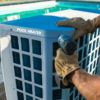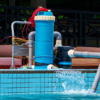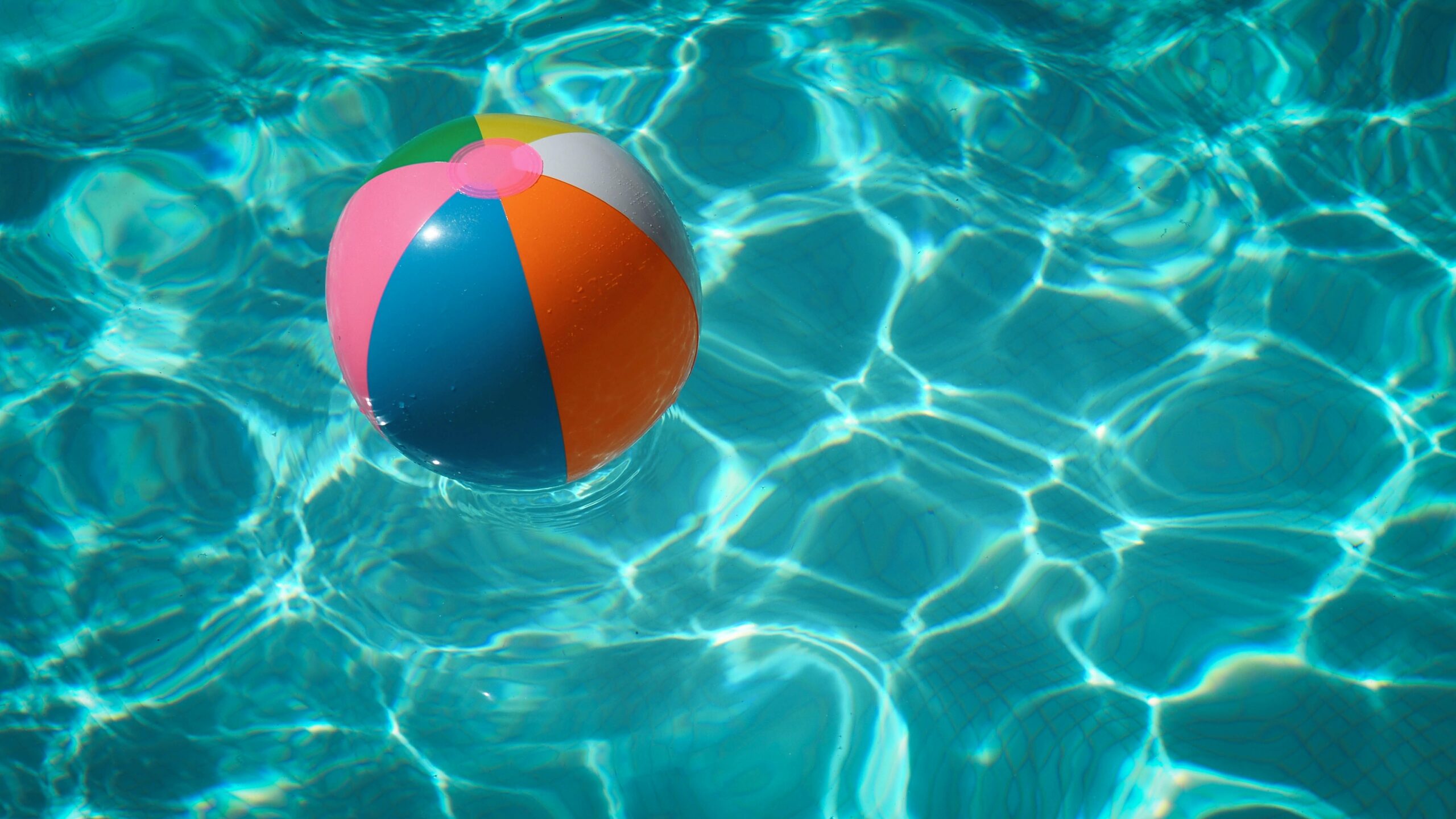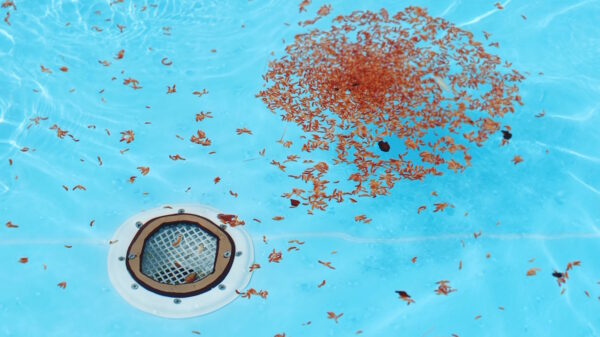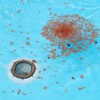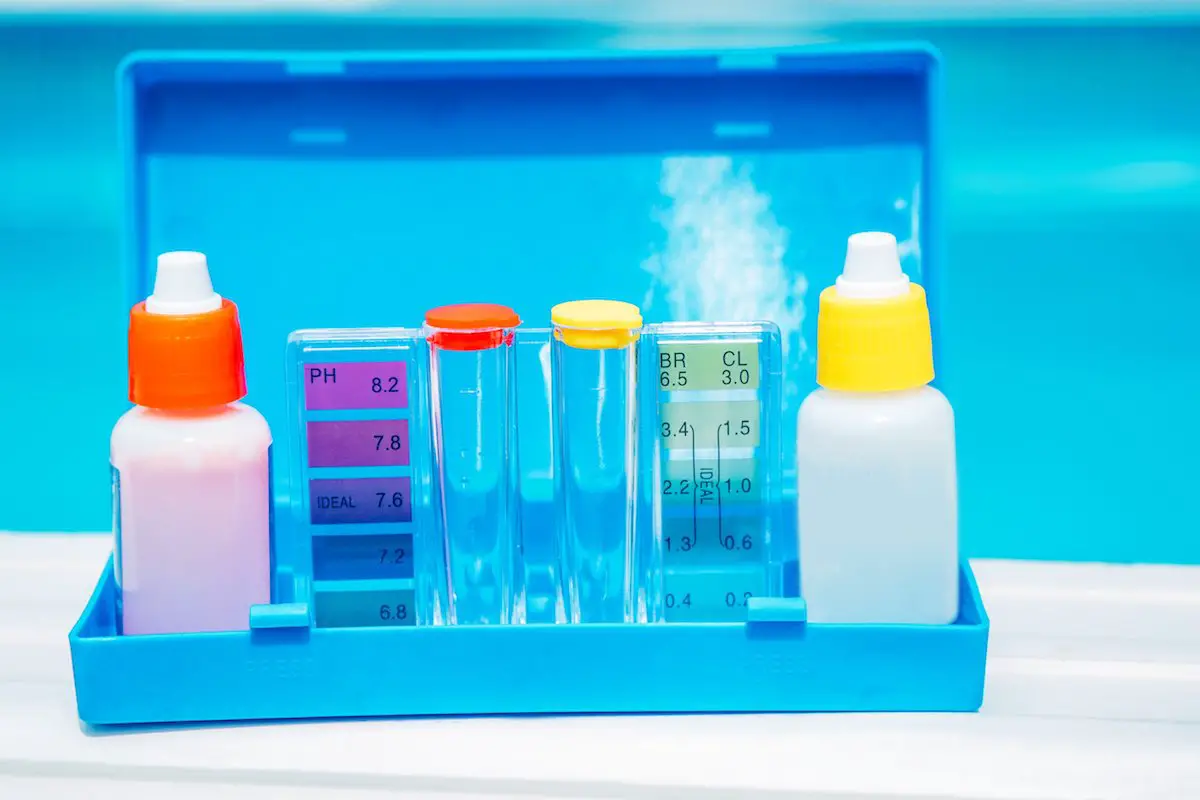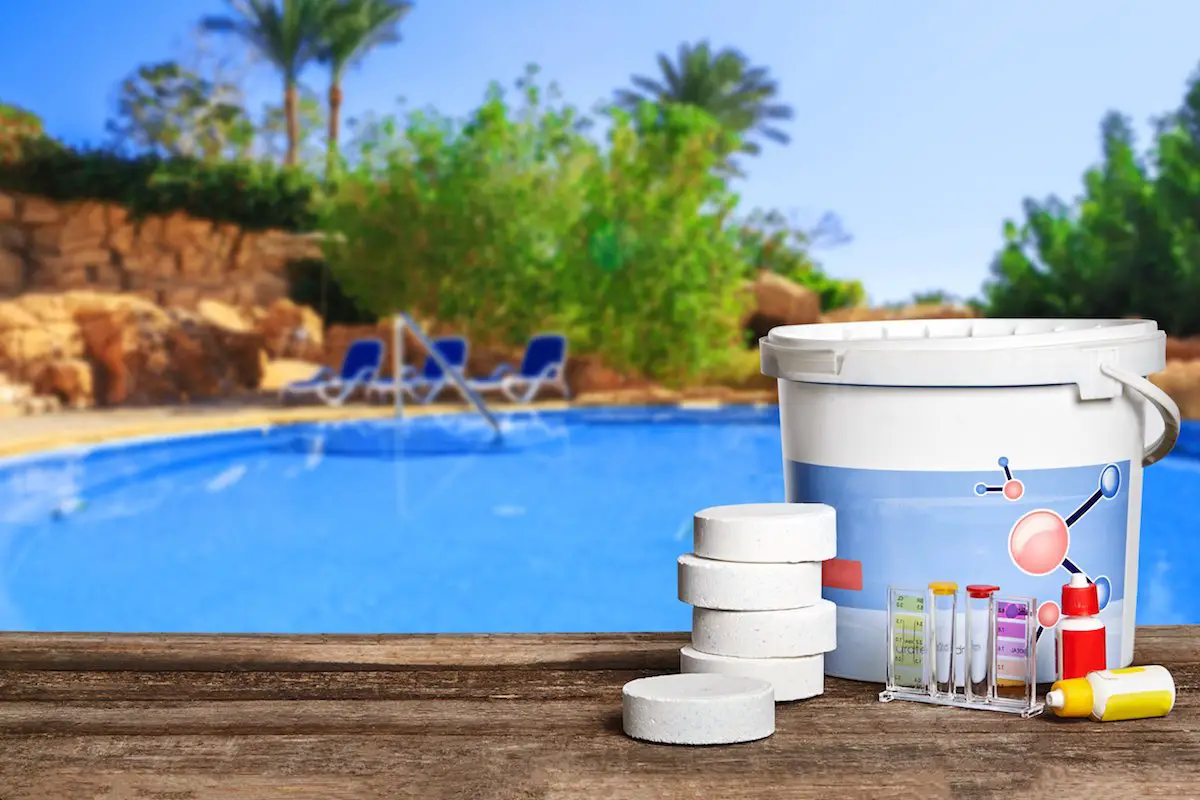When you own a pool, many responsibilities come with maintaining it – a well-kept pool adds value to a home so you want to make sure you do it right! From cleaning it to maintaining water levels to shocking it, there are many things you should know as a pool owner. So, is it safe to shock the pool once a week when it is hot, and why it’s important? As a rule, yes, it is safe to shock your pool once a week, as it keeps the pool safe and clean to use.
Also, you need to know how often you should do it, and the other things you should do to maintain your pool. Keep reading to find out more!
During Hot Summer Months Is It Safe to Shock Weekly?
Yes, it is recommended that you shock your pool once a week. If you tend to have lots of people over, you may want to do it even more frequently. Shocking the pool maintains your pool’s water chemistry, keeping it safe and clean to use. When shocking the pool, keep in mind that two pounds of shock for every 10,000 gallons of water in your pool is the ratio to go by – this ensures that your pool gets the right amount of chemicals to treat it properly.
How Much Shock Should I Use?
| 5,000 Gallon Pool | 1lb of Shock |
| 10,000 Gallon Pool | 2lb of Shock |
| 20,000 Gallon Pool | 4lb of Shock |
Now that we know the answer to your main question about how often you can shock your pool in the hot summer months, let’s make sure you know what “shocking the pool” is, why it’s important, and how to do it safely.

What Does “Pool Shock” Mean?
The term “shock” refers to a form of chlorine that is used to treat your pool. Two different types can be used, a granular form and a liquid form. In the liquid form, the shock comes in a container that looks similar to bleach – is careful when using it because it can bleach your clothes.
Liquid shock is a bit more expensive than the granular form and not as strong, but it dissolves quickly and leaves no residue. The granular form most likely needs to be dissolved in water before being poured into the pool. Ultimately, either kind can be used, it simply comes down to your preference and whether or not you need a stronger product.
How Do You Shock Your Pool?
As always, be sure to read the instructions on the granular/liquid shock before using it. This will ensure that you see any warnings and can help you do the “shocking” safely.
- Be sure that the pool filter is running before either pouring or sprinkling the shock around the perimeter of the pool.
- You should avoid swimming in the pool for 24-48 hours after shocking so that the chemicals have enough time to filter through the water and not harm your skin or eyes.
- The only shock is when there is no one in the pool, it can be very dangerous if people are in the water.
- Shock the pool after the sun goes down and while the filter is running – this ensures optimal results. With the filter running, you can be sure that the shock is filtered properly throughout the whole pool.
- In the summer, it is recommended to shock the pool once a week to kill off any unwanted germs and maintain the pool’s water chemistry.
- Use the correct ratio: Two pounds of shock for every 10,000 gallons of water that’s in your pool.
If you follow these instructions, your pool will be safe, clean, and ready to swim in throughout the hot summer months!
How to Tell If Your Pools Need Shock
There are specific instances that will alert you to shock your pool outside of the weekly recommendation, these include:
- Opening the pool for the season: when you uncover the pool, shocking it to get started will be sure to kill off any bacteria or algae that has grown in the off-season.
- After a party: germs can build up quickly and the water chemistry doesn’t stay stable for very long. With lots of people in the pool, it is always best to follow up with shock so that it is clean and ready for the next use.
- When it’s hot outside: hot water in the pool can increase bacteria growth and lower the chlorine level in your pool, so if you come upon a hot stretch, be sure to shock the pool more often.
- Shock the pool after rain: if you receive heavy rain, it can increase the pH levels of the water and send contaminants into your pool. To avoid anything dangerous, shock the pool after the rain has stopped.
- Closing the pool at the end of the season: even though you’ll shock the pool when you re-open it, you should close it with clean water. This will help keep it clean for longer and limit the growth of bacteria.
One other thing to consider when wondering if it’s time to shock the pool is the pH level. Many people recommend that you shock the pool when the pH level is between 7.2 and 7.4. As a pool owner, there are many things you need to do to maintain the water, cleanliness, and safety of the pool. You’ll get into a routine and get better at noticing when it’s time to shock the pool.

What You Should Know to Maintain Your Pool
In addition to shocking the pool periodically, there are several other things you should check on to maintain your pool.
- Depending on where your pool is located, you will need to skim off leaves and debris that fall onto the surface of the water. This process is pretty easy with a long-handled pool skimmer and takes just a few minutes to keep the water clean and clear.
- For any debris that is missed, as well as algae that collect on the walls of the pools, you can use a vacuum to clean up anything left behind. Automatic vacuums are recommended – simply plug in the cleaner, set it in the water, and let it go to work.
- Multiple things were built into the pool that is designed to help clean and maintain the pool, such as the skimmer. When you clean off the debris from the surface of the water, check the skimmer as well to make sure it’s working effectively.
- Keep the pool pump running and check the filter as needed. Your pool’s circulation system includes many different pieces and only works properly if everything runs smoothly. Make sure that you run the pump long enough to filter the water. You should also make sure that the filter is clean – check weekly for debris or anything that could have been collected.
It may seem like it’s a lot of work to properly maintain your pool, and in a way, it is. But, each of these steps takes very little time to complete, especially if you do them regularly. Putting a routine in place at the start of pool season with your family can help you ensure that it is safe for everyone to enjoy all summer long!
Related Questions
Where Can I Buy Pool Shock and How Much Does it Cost?
Pool shock is available at several retailers in town, including Walmart, Home Depot, Lowe’s, and other home and garden shops in town. Depending on the size of your pool and how often you use it, the cost for pool shock could be more than you expect. One container of liquid pool shock costs between $6-$10. Granular shock can cost between $20-$200 depending on how much you buy at one time. You should consider buying in bulk, especially if you plan on using your pool a lot throughout the summer.
Can You Over-Shock a Pool?
Unlike the phrase “everything in moderation”, when it comes to shocking the pool, this can be tossed out. Truthfully, you cannot “over-shock” your pool. It is possible to use more shock than you need or less, but doing it too often is not possible. While this is true, there is still a right and wrong way to shock your pool, especially if you want to get the best results. The only thing that you may be able to notice if you shock the pool a little more than necessary, is green hair for excess chlorine that oxidizes with the copper in the water.

How Do You Choose the Right Pool Equipment?
There are several kinds of equipment out there to help you clean and maintain your swimming pool, so choosing between them all may be a bit overwhelming when you get started. Luckily, almost everything comes down to your preference. If you’ve never had a pool before, go to your nearest home retailer and talk with a professional. They can advise you on how to get started and can walk you through the pieces you need. Things like your long-handled skimmer, shock, how to clean and check your filter, pool covers, automatic pool vacuums vs. manual vacuums, and so much more. Though it seems like a lot, it’s much easier than you think to clean and maintain your pool. You’ll quickly get into a routine and with regular maintenance, you’ll be surprised at how minimal the work is.


